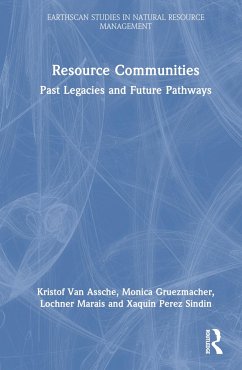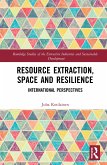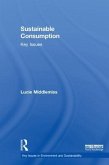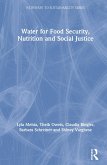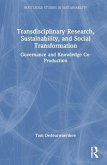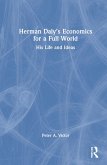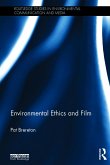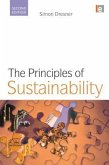Kristof Van Assche, Monica Gruezmacher, Lochner Marais
Resource Communities
Past Legacies and Future Pathways
Kristof Van Assche, Monica Gruezmacher, Lochner Marais
Resource Communities
Past Legacies and Future Pathways
- Gebundenes Buch
- Merkliste
- Auf die Merkliste
- Bewerten Bewerten
- Teilen
- Produkt teilen
- Produkterinnerung
- Produkterinnerung
This book provides an innovative approach to understanding the governance of resource communities, by showcasing how the past and present informs the future.
Andere Kunden interessierten sich auch für
![Resource Extraction, Space and Resilience Resource Extraction, Space and Resilience]() Juha KotilainenResource Extraction, Space and Resilience186,99 €
Juha KotilainenResource Extraction, Space and Resilience186,99 €![Sustainable Consumption Sustainable Consumption]() Lucie MiddlemissSustainable Consumption167,99 €
Lucie MiddlemissSustainable Consumption167,99 €![Water for Food Security, Nutrition and Social Justice Water for Food Security, Nutrition and Social Justice]() Lyla MehtaWater for Food Security, Nutrition and Social Justice168,99 €
Lyla MehtaWater for Food Security, Nutrition and Social Justice168,99 €![Transdisciplinary Research, Sustainability, and Social Transformation Transdisciplinary Research, Sustainability, and Social Transformation]() Tom DedeurwaerdereTransdisciplinary Research, Sustainability, and Social Transformation171,99 €
Tom DedeurwaerdereTransdisciplinary Research, Sustainability, and Social Transformation171,99 €![Herman Daly's Economics for a Full World Herman Daly's Economics for a Full World]() Peter A. VictorHerman Daly's Economics for a Full World168,99 €
Peter A. VictorHerman Daly's Economics for a Full World168,99 €![Environmental Ethics and Film Environmental Ethics and Film]() Pat BreretonEnvironmental Ethics and Film150,99 €
Pat BreretonEnvironmental Ethics and Film150,99 €![The Principles of Sustainability The Principles of Sustainability]() Simon DresnerThe Principles of Sustainability171,99 €
Simon DresnerThe Principles of Sustainability171,99 €-
-
-
This book provides an innovative approach to understanding the governance of resource communities, by showcasing how the past and present informs the future.
Produktdetails
- Produktdetails
- Verlag: Routledge
- Seitenzahl: 260
- Erscheinungstermin: 26. Oktober 2023
- Englisch
- Abmessung: 240mm x 161mm x 19mm
- Gewicht: 558g
- ISBN-13: 9781032364742
- ISBN-10: 1032364742
- Artikelnr.: 68476692
- Herstellerkennzeichnung
- Libri GmbH
- Europaallee 1
- 36244 Bad Hersfeld
- gpsr@libri.de
- Verlag: Routledge
- Seitenzahl: 260
- Erscheinungstermin: 26. Oktober 2023
- Englisch
- Abmessung: 240mm x 161mm x 19mm
- Gewicht: 558g
- ISBN-13: 9781032364742
- ISBN-10: 1032364742
- Artikelnr.: 68476692
- Herstellerkennzeichnung
- Libri GmbH
- Europaallee 1
- 36244 Bad Hersfeld
- gpsr@libri.de
Kristof Van Assche is a Professor of Planning, Governance and Development at the University of Alberta, Canada, and a Senior Fellow in the Centre for Development Research (ZEF) at Bonn University, Germany. Monica Gruezmacher is a Research Associate in the Department of Earth and Atmospheric Sciences at the University of Alberta, Canada, and a Teaching Assistant Professor at the School of Science and the Environment at Memorial University of Newfoundland, Canada. Lochner Marais is a Professor in the Centre for Development Support at the University of the Free State, South Africa, and an Honorary Professor at the Sustainable Minerals Institute at the University of Queensland, Australia. Xaquin Perez-Sindin is an Assistant Professor in the Faculty of Economic Sciences at the University of Warsaw, Poland.
1. Introduction: Resource communities in the imperfect grip of the past
2. History, memory and legacy in resource communities
3. Identity and reinvention in resource communities
4. Symbolic violence and healing in resource communities
5. Trauma and healing in resource communities: Invisible legacies and
sources for optimism
6. Power knowledge and the governance of resource communities
7. Concentration problems and resource communities
8. Legacies and futures in the governance of resource communities
9. Tripping over the Real: Why strategies often do not work in resource
communities
10. Strategy and community in resource communities
11. Conclusions: Legacies, (in) accessible parts, and navigating the
futures of resource communities
12. A practical methodology: Self-analysis and strategy in resource
communities
2. History, memory and legacy in resource communities
3. Identity and reinvention in resource communities
4. Symbolic violence and healing in resource communities
5. Trauma and healing in resource communities: Invisible legacies and
sources for optimism
6. Power knowledge and the governance of resource communities
7. Concentration problems and resource communities
8. Legacies and futures in the governance of resource communities
9. Tripping over the Real: Why strategies often do not work in resource
communities
10. Strategy and community in resource communities
11. Conclusions: Legacies, (in) accessible parts, and navigating the
futures of resource communities
12. A practical methodology: Self-analysis and strategy in resource
communities
1. Introduction: Resource communities in the imperfect grip of the past
2. History, memory and legacy in resource communities
3. Identity and reinvention in resource communities
4. Symbolic violence and healing in resource communities
5. Trauma and healing in resource communities: Invisible legacies and sources for optimism
6. Power knowledge and the governance of resource communities
7. Concentration problems and resource communities
8. Legacies and futures in the governance of resource communities
9. Tripping over the Real: Why strategies often do not work in resource communities
10. Strategy and community in resource communities
11. Conclusions: Legacies, (in) accessible parts, and navigating the futures of resource communities
12. A practical methodology: Self-analysis and strategy in resource communities
2. History, memory and legacy in resource communities
3. Identity and reinvention in resource communities
4. Symbolic violence and healing in resource communities
5. Trauma and healing in resource communities: Invisible legacies and sources for optimism
6. Power knowledge and the governance of resource communities
7. Concentration problems and resource communities
8. Legacies and futures in the governance of resource communities
9. Tripping over the Real: Why strategies often do not work in resource communities
10. Strategy and community in resource communities
11. Conclusions: Legacies, (in) accessible parts, and navigating the futures of resource communities
12. A practical methodology: Self-analysis and strategy in resource communities
1. Introduction: Resource communities in the imperfect grip of the past
2. History, memory and legacy in resource communities
3. Identity and reinvention in resource communities
4. Symbolic violence and healing in resource communities
5. Trauma and healing in resource communities: Invisible legacies and
sources for optimism
6. Power knowledge and the governance of resource communities
7. Concentration problems and resource communities
8. Legacies and futures in the governance of resource communities
9. Tripping over the Real: Why strategies often do not work in resource
communities
10. Strategy and community in resource communities
11. Conclusions: Legacies, (in) accessible parts, and navigating the
futures of resource communities
12. A practical methodology: Self-analysis and strategy in resource
communities
2. History, memory and legacy in resource communities
3. Identity and reinvention in resource communities
4. Symbolic violence and healing in resource communities
5. Trauma and healing in resource communities: Invisible legacies and
sources for optimism
6. Power knowledge and the governance of resource communities
7. Concentration problems and resource communities
8. Legacies and futures in the governance of resource communities
9. Tripping over the Real: Why strategies often do not work in resource
communities
10. Strategy and community in resource communities
11. Conclusions: Legacies, (in) accessible parts, and navigating the
futures of resource communities
12. A practical methodology: Self-analysis and strategy in resource
communities
1. Introduction: Resource communities in the imperfect grip of the past
2. History, memory and legacy in resource communities
3. Identity and reinvention in resource communities
4. Symbolic violence and healing in resource communities
5. Trauma and healing in resource communities: Invisible legacies and sources for optimism
6. Power knowledge and the governance of resource communities
7. Concentration problems and resource communities
8. Legacies and futures in the governance of resource communities
9. Tripping over the Real: Why strategies often do not work in resource communities
10. Strategy and community in resource communities
11. Conclusions: Legacies, (in) accessible parts, and navigating the futures of resource communities
12. A practical methodology: Self-analysis and strategy in resource communities
2. History, memory and legacy in resource communities
3. Identity and reinvention in resource communities
4. Symbolic violence and healing in resource communities
5. Trauma and healing in resource communities: Invisible legacies and sources for optimism
6. Power knowledge and the governance of resource communities
7. Concentration problems and resource communities
8. Legacies and futures in the governance of resource communities
9. Tripping over the Real: Why strategies often do not work in resource communities
10. Strategy and community in resource communities
11. Conclusions: Legacies, (in) accessible parts, and navigating the futures of resource communities
12. A practical methodology: Self-analysis and strategy in resource communities

